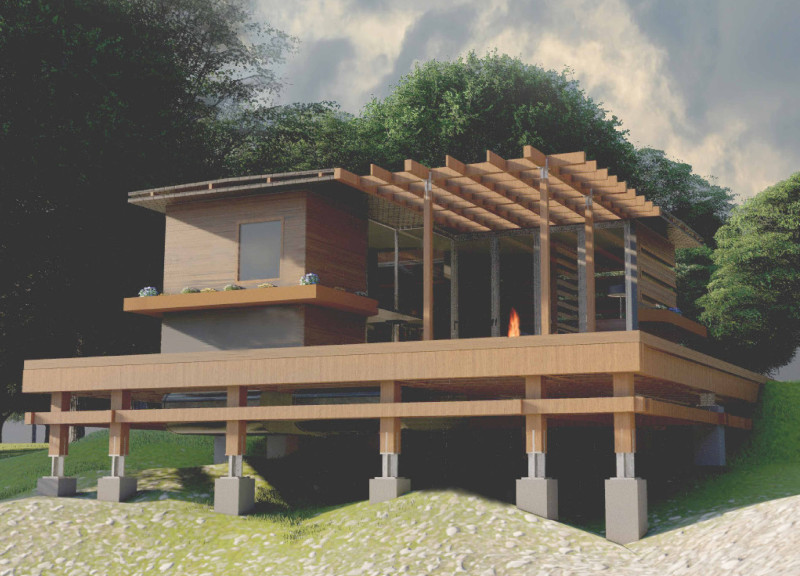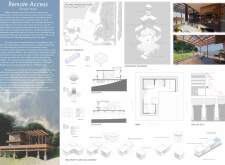5 key facts about this project
The design is situated in North Carolina, focusing on the growing need for sustainable and adaptable housing. It offers a compact living solution that can operate in both urban and rural settings. The home can serve as a standalone off-grid residence or integrate into a small community. The concept centers around energy independence and efficient use of space, catering to contemporary shifts brought about by the Covid-19 pandemic.
Design Layout
At the core of the structure is a central bedroom area, which organizes the overall layout and serves as a pivot for two wings. This layout creates an exterior space that connects with the interior. Pocket doors open up this area, expanding the living space and promoting interaction with nature. This approach considers the pleasant climate of North Carolina, allowing the design to adapt to seasonal changes.
Sustainable Features
Sustainability is a key focus of the design. It features solar panels, passive cooling systems, and a rainwater collection setup, allowing the home to function independently of traditional energy sources. Composting systems are also part of the design, which contributes to a lower environmental impact. These elements work together to support eco-friendly living.
Modular Construction
The construction method is modular, meaning parts are built in advance and then assembled on-site. This process allows for faster completion and easier transport to locations. The design also accommodates changes in climate, such as using wood frames instead of traditional glazing, enhancing comfort while addressing different weather conditions.
Vertical Gardens
Noteworthy is the inclusion of vertical gardens that utilize rainwater for irrigation. This feature improves the visual appeal of the home while providing fresh produce for occupants. These gardens help enhance biodiversity and strengthen the connection between the structure and its natural surroundings. The design encourages a lifestyle that appreciates both the home and the environment.


















































